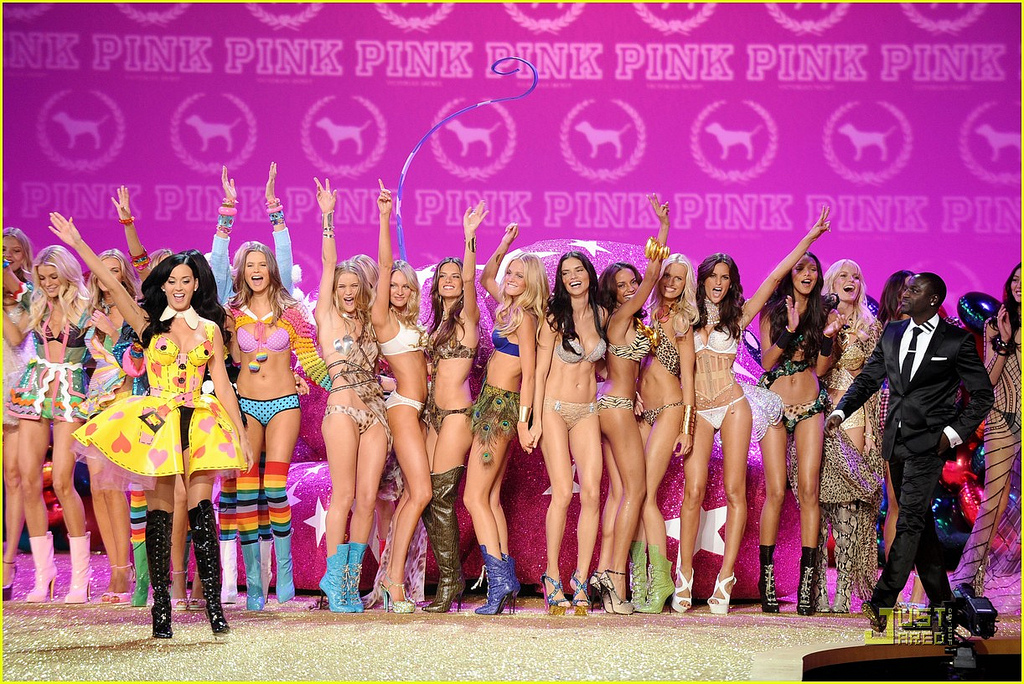
Life and Style’s writer Francesca McArdle-King weighs in on the comeback of Victoria’s Secret
Content warning: This article contains discussions of body image and racism
Victoria’s Secret Angels. We’ve all heard of them. We’ve definitely hated them. Let’s face it: at some point, we’ve probably all wanted to be them. Undoubtedly having won the genetic lottery, the models who have strutted global runways since the nineties flaunt an impossible type of beauty, earning their infamous nickname.
The Victoria’s Secret fashion show was a hugely popular annual event throughout its initial years, with 10.3 million people tuning in to watch in 2011. However, the brand lost popularity and sales amidst complaints that the show lacked diversity and inclusivity within its cast of models. Whilst the show did feature models of a range of ethnicities since its debut in 1995, which included African-American model Veronica Webb, the brand failed to ever feature a plus sized model within its shows.
Victoria’s Secret Angels. We’ve all heard of them. We’ve definitely hated them. Let’s face it: at some point, we’ve probably all wanted to be them
Chief marketing officer of the brand, Ed Bazar, continually refused to include women larger than a size eight, controversially asserting that the public had no interest in it – because of course, what could possibly be desirable about a curvaceous woman? (Marilyn Monroe? Never heard of her!) The growing contention surrounding the brand led to the show’s cancellation in 2019.
Fast-forward to 2023, and Victoria’s Secret re-emerges into the fashion world with a patent mission. Launching a campaign titled ‘The Icon Collection’, paired with a ‘world tour’, featuring models of a diverse range of body types and differently-abled models. The brand’s intention was clear – to clean up their act and win over the world once more. However, this rebrand was met with disappointment from fans. Accusations of overindulgence in ‘woke’ performativity have been propelled at the rebrand, along with commenters online criticising the disappointing lack of glamour and sexual allure that was so abundant in the shows of the nineties and early 2000s.
Finally, after a five year hiatus, the Victoria’s Secret Fashion Show has been announced to make a return in New York City on October 15th, this time promising a diverse inclusivity that is simultaneous with the vibrant pageantry that fans adored about the traditional runway shows.
The #bodypositivity movement that has seized social media platforms over the last decade has a lot to account for this change. The shifting narrative surrounding the acceptance of a range of body types has had a profound impact on the fashion industry, from a rise in plus-sized clothing brands to an increased representation of plus-sized models in mainstream fashion spaces: Vogue has featured many plus-sized models in its magazines and has criticised “the true lack of size diversity in fashion”.
To many, this movement proves to be an unprecedented and empowering notion that helps to alleviate the unattainable and often Eurocentric beauty standards that perpetuate eating disorder culture and systematic racism. For the first time in many years, the narrative that implies the only beauty standard to aspire to, is that of a thin white woman, is being dismantled. Is Victoria’s Secret finally adjusting their impossibly perfect brand image in the name of a revolutionary feminist statement?
is Victoria’s Secret finally adjusting their impossibly perfect brand image in the name of a revolutionary feminist statement?
According to Barbara Ellen writing in the Guardian, not quite. Ellen denounces the rebrand as an “unintentionally hilarious exercise in patronising woo-woo, fuelled by the lazy presumption that hazing the public with “good intentions” and “big thoughts” makes you morally (and profitably) untouchable.” Indeed, particularly proceeding with the brand’s lengthy stint of strict hyper-feminine aesthetic conformity, it does seem a little too good to be true. One does question whether this is a strategic ‘tick box’ business move designed to generate profit rather than demonstrate a genuine shift in attitudes towards the representation of women.
Nevertheless, the highly anticipated return of the iconic runway show is sure to attract viewers in the millions. Will it be a refreshing step towards a more inclusive celebration of women’s bodies? Or rather, an insincere and performative attempt at appealing to the ‘woke’ crowd for the sole purpose of capital gain? Tune in on 15th October and decide for yourself.
Read more from Life&Style:
The Secret to Hello Kitty’s Half-Century of Success: Celebrating 50 Years of a Global Icon
Comments